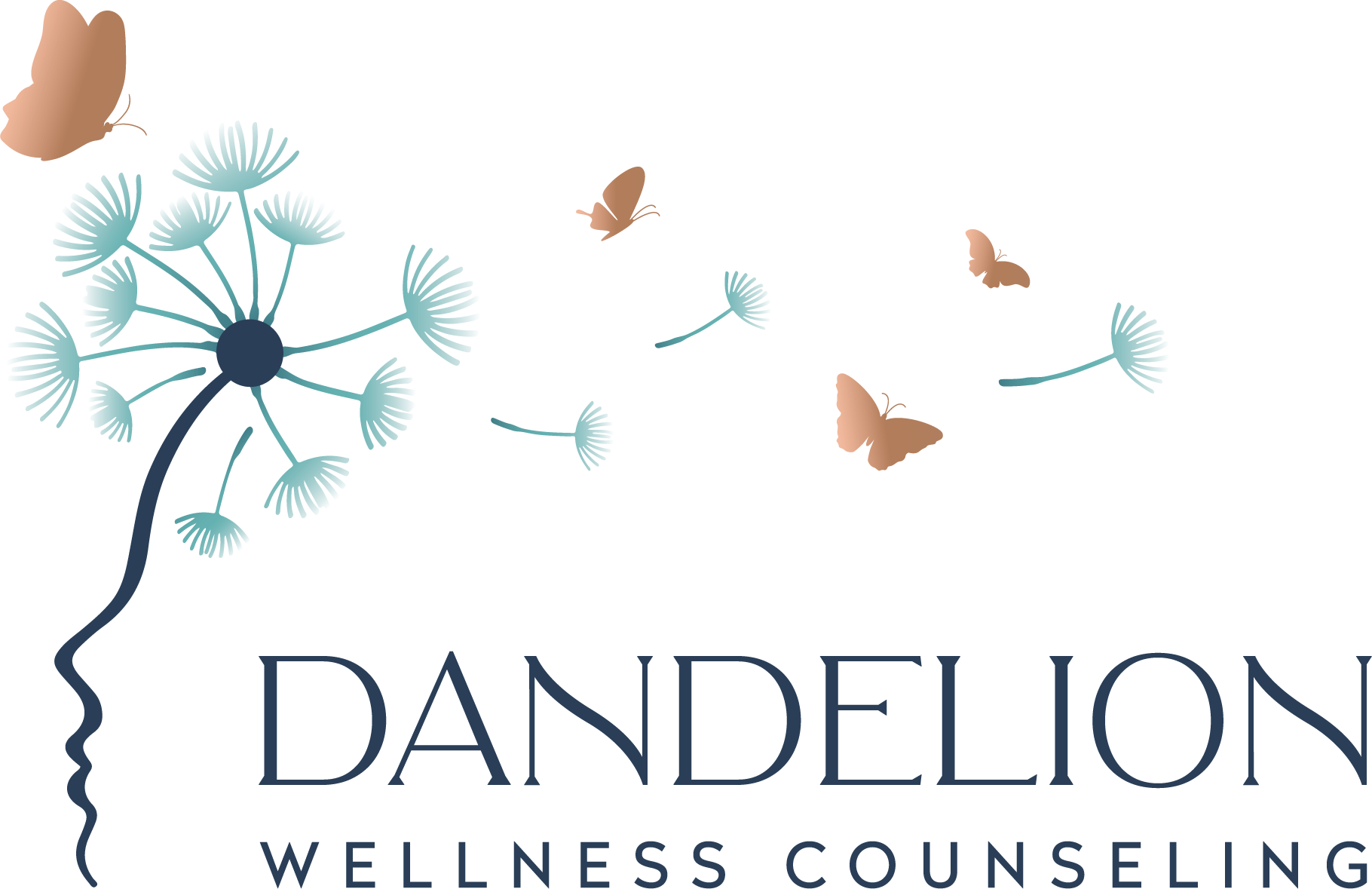7 Myths About Mental Health Counseling | Dandelion Wellness Counseling

Looking for Therapy Support? Here's How We Can Help:
Mental health counseling has helped millions of people feel more like themselves again. And yet, despite its proven benefits, many people still hesitate to get started—often because of outdated or inaccurate ideas about what therapy is.
At Dandelion Wellness Counseling, we’ve heard just about every reason why someone thinks counseling “isn’t for them.” But more often than not, those reasons are based on myths.
Let’s take a closer look at some of the most common misconceptions about mental health counseling—and what the truth actually is.

Myth 1: “Counseling is only for people with serious mental illness.”
One of the biggest barriers to getting help is the belief that you need to be in crisis to seek counseling. This simply isn’t true.
The reality: Mental health counseling supports people through a wide range of challenges—not just those with a clinical diagnosis. You don’t need a label to deserve support. Whether you’re dealing with daily stress, grief, relationship struggles, or uncertainty about the future, counseling can help you process and move forward.
At Dandelion Wellness Counseling, we work with individuals across the emotional spectrum. You don’t need to “qualify.” You just need to be human.
Myth 2: “Talking about my problems won’t change anything.”
It’s understandable to feel skeptical. If talking to friends hasn’t helped, why would a stranger be any different?
The reality: A licensed counselor is not just a good listener—they’re trained to help you identify thought patterns, emotional cycles, and coping habits that keep you stuck. Through personalized, evidence-based methods, they help you understand your experience in new ways and build better tools for navigating it.
Therapy isn’t just venting—it’s collaborative problem-solving. And it works.
Explore how our mental health counseling services create lasting change.
Myth 3: “If I need counseling, it means I’m weak.”
This one cuts deep. Many of us were raised to push through problems, stay strong, and never ask for help.
The reality: Strength isn’t about pretending to be okay—it’s about taking steps toward healing, even when it’s uncomfortable. Counseling isn’t a sign of weakness. It’s a commitment to your well-being and a sign of deep self-respect.
At Dandelion Wellness, we remind every client: asking for support is one of the strongest things you can do.
Myth 4: “A counselor will tell me what to do with my life.”
Some people avoid therapy because they’re worried it’ll feel like being judged, lectured, or told what to do.
The reality: A skilled mental health counselor won’t give you a list of instructions. Instead, they’ll help you gain the clarity and confidence to make your own decisions—with more self-awareness and less emotional fog.
We believe in partnership, not power dynamics. At Dandelion Wellness Counseling, you’re in the driver’s seat. We’re just here to help with the map.
Myth 5: “It’s too expensive or time-consuming.”
Cost and time are valid concerns. But assuming that counseling is always expensive or requires a huge commitment can stop you from even looking into options.
The reality: Mental health counseling can be surprisingly accessible. Many practices (including ours) offer flexible scheduling, virtual sessions, and varied session frequency depending on your needs. Some insurance plans and HSAs/FSA accounts can also help offset costs.
If you're in Long Island or anywhere in New York, Dandelion Wellness Counseling offers options that work with your lifestyle—not against it.
Myth 6: “Counseling is just for people who can’t handle things on their own.”
This myth is especially common among high-achievers and caretakers—people who are used to being the strong one, the fixer, the helper.
The reality: Everyone needs support sometimes. Counseling doesn’t mean you’re broken—it means you’re human. In fact, many people who seek therapy are deeply self-aware, responsible individuals who want to grow and be more intentional in how they live and relate to others.
If you’ve been the one holding everything together, it’s okay to let someone hold space for you now.
Myth 7: “If I start counseling, I’ll be in it forever.”
There’s a common fear that once you start therapy, you’ll be stuck in it indefinitely.
The reality: You control the pace and duration of your therapy. Some people benefit from just a few sessions to work through a specific issue, while others prefer longer-term support. At Dandelion Wellness, we check in with you regularly to make sure your sessions are still serving your goals.
Mental health counseling is flexible. It evolves with your needs.
What Counseling Actually Offers
Now that we’ve debunked the myths, let’s talk about what counseling does offer.
When you start counseling at Dandelion Wellness Counseling, you get:
- A licensed professional trained in a variety of proven therapeutic approaches
- A compassionate space that’s nonjudgmental and centered on you
- Support that addresses not only what’s happening on the surface, but the deeper roots of what you’re experiencing
- A personalized path forward—whether you’re dealing with anxiety, trauma, grief, or just feeling lost
You also gain tools that help long after therapy ends: emotional regulation, communication skills, resilience, and a better relationship with yourself.
You Deserve Support That Works for You
There’s no shame in needing support. There’s no weakness in choosing to heal. And there’s nothing wrong with not having all the answers right now.
What matters is that you don’t let misconceptions stand between you and the relief you deserve.
At Dandelion Wellness Counseling, we offer mental health counseling that meets you where you are—whether you're in Babylon, East Islip, Massapequa, or anywhere on Long Island. We also offer virtual sessions for clients throughout New York.
You’re not alone in this. If you’re ready to explore the benefits of counseling without judgment, we’re here when you are.
Book your first session—and let’s move past the myths, together.
